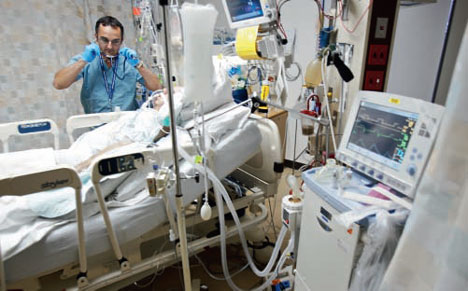A terminally ill patient is seen by a colleague in your group practice after hospitalization for pneumonia. The patient has metastatic cancer and COPD, and he is currently on a ventilator. He has been seeing your group for over 10 years, and you and your partner have been following him through hospital admissions and routine treatment. You and your partner have had multiple discussions about end-of-life care with the patient; during each discussion, the family deflects the conversation and does not wish to consider palliative care, choosing instead to pursue aggressive radiation and chemotherapy instead. You overhear from your colleague that she has not placed him on antibiotics for his recent pneumonia even though the pneumonia would resolve with treatment. How would you respond to this course of treatment? Do you agree or disagree with your colleague’s course of action?
Alexandra Cooke is a medical student at The University of Arizona College of Medicine – Phoenix. She graduated in 2013 from UA with bachelor's degrees in physiology and international studies. This self-proclaimed global health nerd and news junkie can commonly be found downtown exploring local coffee shops and bookstores or out dancing ballroom or swing with friends. In the future, Alexandra hopes to incorporate her passions (somehow) into her medical career and be able to empower patients. She is one of the co-chairs of the Medical Ethics Interest Group.


